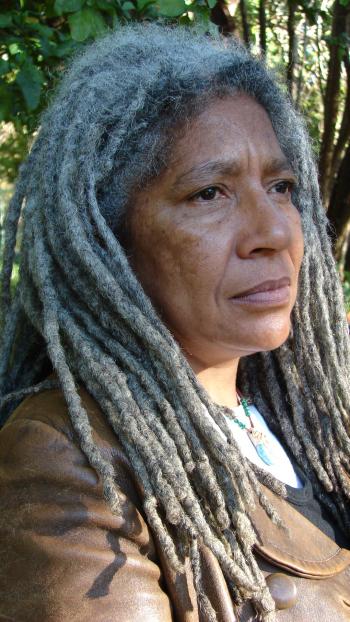Posted on June 14, 2012

Black, Gay, Lesbian, Bi-sexual, Transgendered and Inter-sexed (LGBTI) people living in South Africa continue being raped, murdered and ridiculed largely because they are divided. White voices remain virtually silent whilst their money speaks only for themselves. Existing LGBTI organisations like Freegender in Khayelitsha receive any or no support from government or other human rights organisations. Not enough information and education is forthcoming to bring awareness around the extraordinary work and lives of LGBTI people generally. The divisions around race, racism and class will be a topic for another discussion.
One of the reasons behind this article came upon me hearing our very own Zulu King Goodwill Zwelithini's reported slur against same sex relationships. I can't even imagine what the King would do or say should he discover a member of his monarchy is 'queer'. Would he have made this speech? “If you are one of the people I am talking about, people who have sex with people of their own sex, a man who sexually harasses another man, a woman who sexually harasses another woman, you are rottenâ€Â. In one passage sex is mentioned four times, I have a strange feeling the King equates sex with LGBTI people. Does it not sound as if the King and his subjects believe that 'queer' people spend their lives having sex? And does it not seem as if the monarch is hiding his head in the sands of tradition, so that by seeing nothing he avoids the truth?
The enunciation and subsequent archiving of LGBTI people who survive/d the challenges despite their apparent fear are crucial in building on past struggles won. This will signify genuine resolute and near change in people like Zulu King Goodwill Zwelithini and his subjects. Social activists say that ten women are now assaulted every week by men who claim to be ‘curing’ their victims of homosexuality. There remains a strong sense among men that they have power over women, women’s bodies. There is a prevailing sense that there’s not going to be consequences because most often there are none.
More than two years after the death of Johannesburg's Eudy Simelane, the government has done little to halt the barbaric sex attacks dubbed ‘corrective’ rape. Gang-raped, beaten and stabbed 25 times, she was a 'lesbian' activist whose murder blew open South Africa’s hate crime epidemic. She was a football star training to be the first female referee at the 2010 World Cup. An icon too many, she had been an extraordinary footballer - and was also the first woman to live openly as a lesbian in her neighbourhood. No part of her body had been left untouched. Some of the 25 knife wounds were even in the soles of her feet. Then last week Thapelo Makutle, Miss Gay Kuruman, was allegedly beheaded because of his sexuality.
Though there are many more horrifying stories I found that the best place to start archiving would be with me, a proud fifty three year old black lesbian with a strong purpose to tell herstory even in fear of being 'cured'.
As a child I never knew what I was; no one ever told me that I was different and yet I knew that I was. At the age of ten I fell in love with a girl at school whose name cannot be divulged for obvious reasons. Walking in the school yard hand in hand was the highlight of my day while we basked in childish affections. Weekends were spent missing her. I balled my eyes out at our parting for high school. Sadly I never saw her again.
My teenage years were spent mostly at home with my parents, which later became my haven away from my girlfriends going to parties with their boyfriends. Yet in a strange way I now believe that my mother in her silence of the fact that her daughter was a 'lesbian' tried to shield me from having sex with men. I know now that back in the nineteen seventies she knew me already. I never did sleep with men. Today I know many other lesbians that are virgins in the 'straight' sense of the word; I always thought I was the only one. Unlike most LGBTI today disclosure or 'coming out' was a foreign term and a process best left in the closet. Nonetheless something as instinctive as being 'gay' and 'lesbian' needed ways of articulating its naturalness. And so it did. Though I did not have the words to speak I could make known my existence without committing myself to the 'gay' label. The love that would not dare speak presented itself through a pose, a gesture, a hairstyle and clothes. Dress has long been a medium of expression and communication, a silent language through which I spoke.
I echo the many challenges and triumphs of 'lesbians' in South Africa and support advocacy groups like Freegender in Khayelitsha. With the growing levels of hate crimes of Lesbians, Gays, Bi-sexual, Transgender and Intersex South Africans it is inspiring to know that some of us are prepared to let our voices be heard.
Lucy Campbell is an Archival Platform correspondent